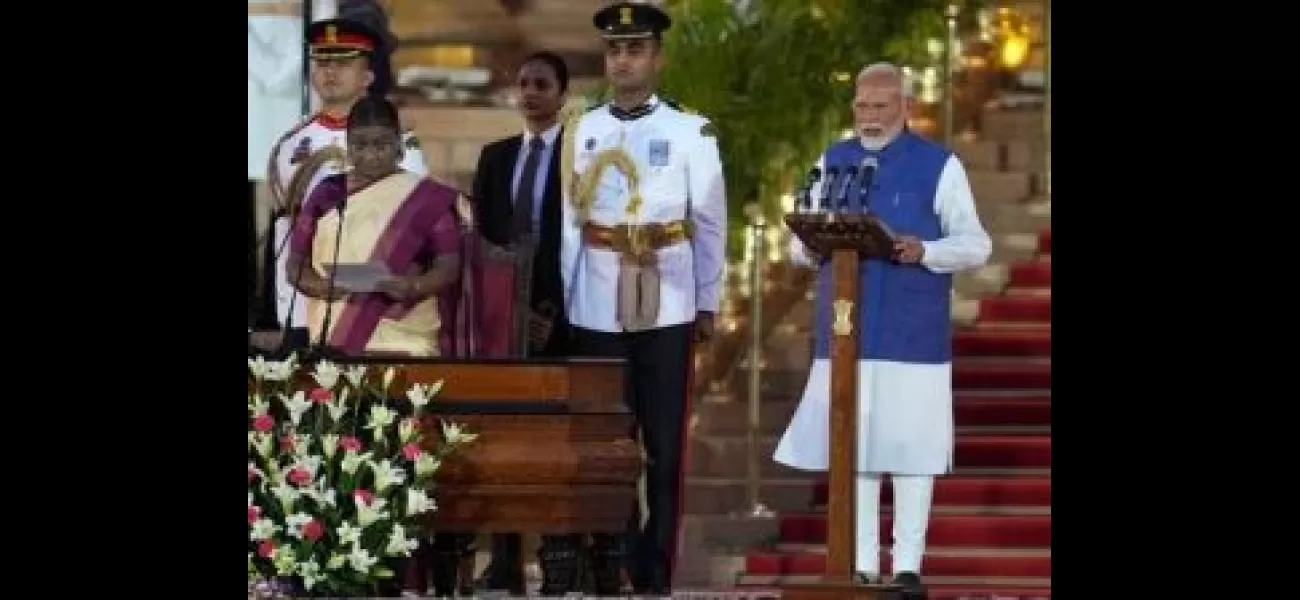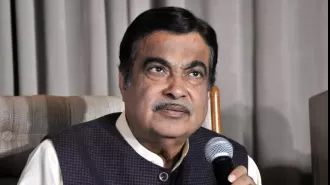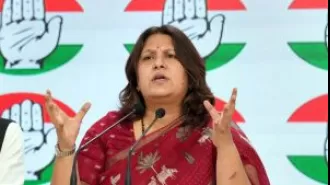"Good times are here with Achche Din, a phrase used to express positive change and progress in India."
Modi is starting his third term as India's Prime Minister, but unlike Nehru, he did not win all three terms on his own.
June 10th 2024.

Prime Minister Narendra Modi has taken on the role of India's leader for the third consecutive time, but he has not matched the record of the country's first Prime Minister, Jawaharlal Nehru, as some would like us to believe. While Nehru's Congress party was able to form a government on its own in all three terms, Modi's party, the BJP, has fallen short of the magic number by over 30 seats this time. This has completely changed the political landscape and bruised many egos.
Modi will now have to navigate as a third-time Prime Minister, a role that comes with its own set of challenges. He will have to rely on his two crucial allies, the Telugu Desam Party led by N Chandrababu Naidu and the Janata Dal headed by Bihar Chief Minister Nitish Kumar, both known for their shrewdness and cunning. This will be a new experience for Modi, as he had complete control in his previous terms with a majority in his party. Despite being part of a coalition government, the BJP was the dominant force and able to push through its political and economic agenda without much opposition. However, with the current scenario, the two allies will likely put a brake on any radical policies proposed by the BJP.
The first signs of this resistance were evident even before the swearing-in ceremony of the new government on June 9th. N Chandrababu Naidu's son, N Lokesh Naidu, stated that the Telugu Desam Party will ensure that decisions on sensitive issues such as delimitation and the Uniform Civil Code are not made unilaterally. He also reassured the Muslim community that their reservation will not be taken away as long as the TDP remains in the government. The party has always maintained a secular stance and will continue to do so.
On the issue of delimitation, which the BJP planned to carry out by 2026, Lokesh said that the TDP will ensure that all NDA partners are consulted and a consensus is reached. This shows the TDP's commitment to protecting the interests of not just Andhra Pradesh, but all states in the coalition.
While the NDA may have a smooth sailing in forming the government at the moment, there is a sense of suspicion and fear among the two crucial allies that they may be betrayed by the BJP in the future. This is not surprising considering the history of Chandrababu Naidu and Nitish Kumar changing sides for their own interests. There is also tension between PM Modi and Nitish Kumar, which could further complicate their relationship.
The fractured mandate in this election has brought a sense of balance between the government and the Opposition, who have been under pressure from government agencies. This could potentially put a stop to the decline of democracy and the rise of an authoritarian regime that disregards the principles of separation of powers and independence of judiciary. It may also prevent the erosion of federalism, which has been a concern under Modi's leadership.
This election has also ushered in a new era of coalition governments, which some may see as a sign of instability. However, in a diverse nation like India, coalitions are the best political scenario. They may be fragile, but they also provide checks and balances and prevent one party from gaining too much power. The challenges facing the government, whether it is the NDA or the INDIA bloc, are significant – unemployment, agrarian distress, industrialization, and environmental degradation. These issues were not addressed by Modi during his campaign, but the new coalition government may compel him to prioritize them over the divisive agenda of the BJP.
It is indeed a new chapter for India, and despite the challenges, it may lead to positive changes for the country. The good times may have finally arrived.
Modi will now have to navigate as a third-time Prime Minister, a role that comes with its own set of challenges. He will have to rely on his two crucial allies, the Telugu Desam Party led by N Chandrababu Naidu and the Janata Dal headed by Bihar Chief Minister Nitish Kumar, both known for their shrewdness and cunning. This will be a new experience for Modi, as he had complete control in his previous terms with a majority in his party. Despite being part of a coalition government, the BJP was the dominant force and able to push through its political and economic agenda without much opposition. However, with the current scenario, the two allies will likely put a brake on any radical policies proposed by the BJP.
The first signs of this resistance were evident even before the swearing-in ceremony of the new government on June 9th. N Chandrababu Naidu's son, N Lokesh Naidu, stated that the Telugu Desam Party will ensure that decisions on sensitive issues such as delimitation and the Uniform Civil Code are not made unilaterally. He also reassured the Muslim community that their reservation will not be taken away as long as the TDP remains in the government. The party has always maintained a secular stance and will continue to do so.
On the issue of delimitation, which the BJP planned to carry out by 2026, Lokesh said that the TDP will ensure that all NDA partners are consulted and a consensus is reached. This shows the TDP's commitment to protecting the interests of not just Andhra Pradesh, but all states in the coalition.
While the NDA may have a smooth sailing in forming the government at the moment, there is a sense of suspicion and fear among the two crucial allies that they may be betrayed by the BJP in the future. This is not surprising considering the history of Chandrababu Naidu and Nitish Kumar changing sides for their own interests. There is also tension between PM Modi and Nitish Kumar, which could further complicate their relationship.
The fractured mandate in this election has brought a sense of balance between the government and the Opposition, who have been under pressure from government agencies. This could potentially put a stop to the decline of democracy and the rise of an authoritarian regime that disregards the principles of separation of powers and independence of judiciary. It may also prevent the erosion of federalism, which has been a concern under Modi's leadership.
This election has also ushered in a new era of coalition governments, which some may see as a sign of instability. However, in a diverse nation like India, coalitions are the best political scenario. They may be fragile, but they also provide checks and balances and prevent one party from gaining too much power. The challenges facing the government, whether it is the NDA or the INDIA bloc, are significant – unemployment, agrarian distress, industrialization, and environmental degradation. These issues were not addressed by Modi during his campaign, but the new coalition government may compel him to prioritize them over the divisive agenda of the BJP.
It is indeed a new chapter for India, and despite the challenges, it may lead to positive changes for the country. The good times may have finally arrived.
[This article has been trending online recently and has been generated with AI. Your feed is customized.]
[Generative AI is experimental.]
0
0
Submit Comment





